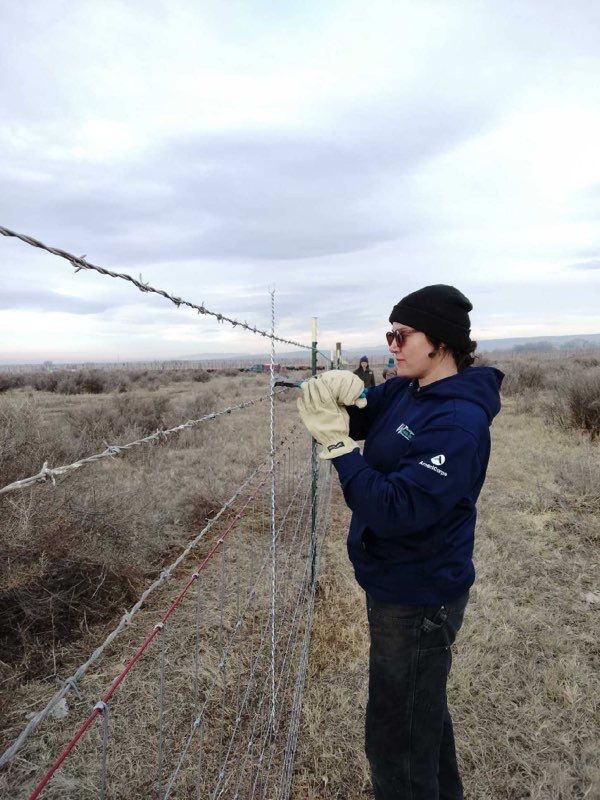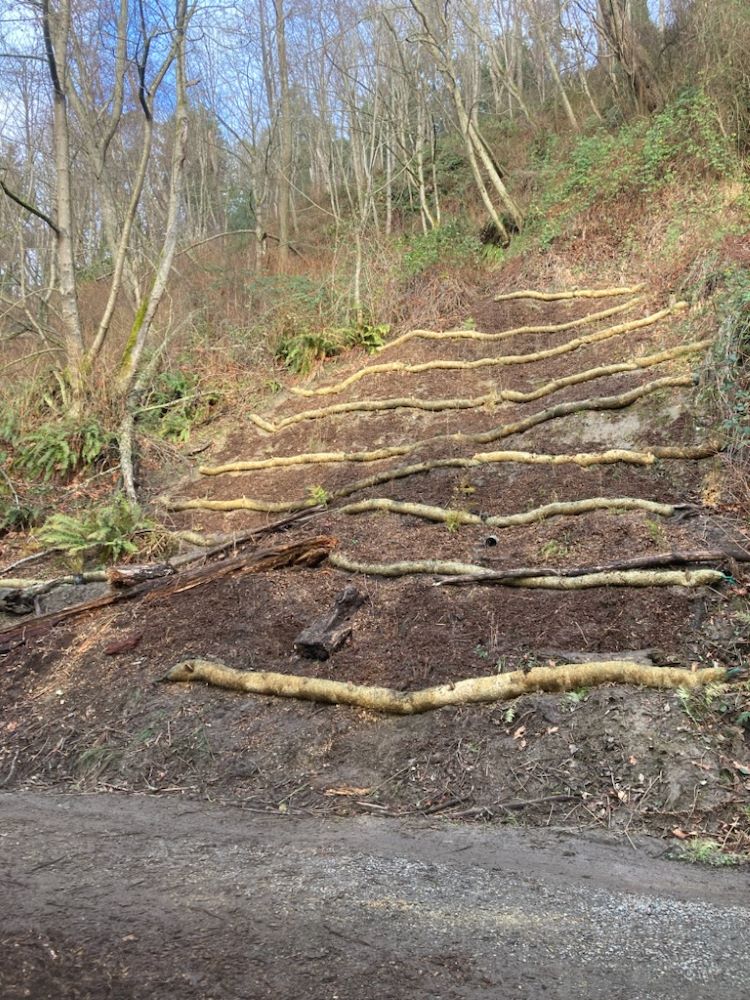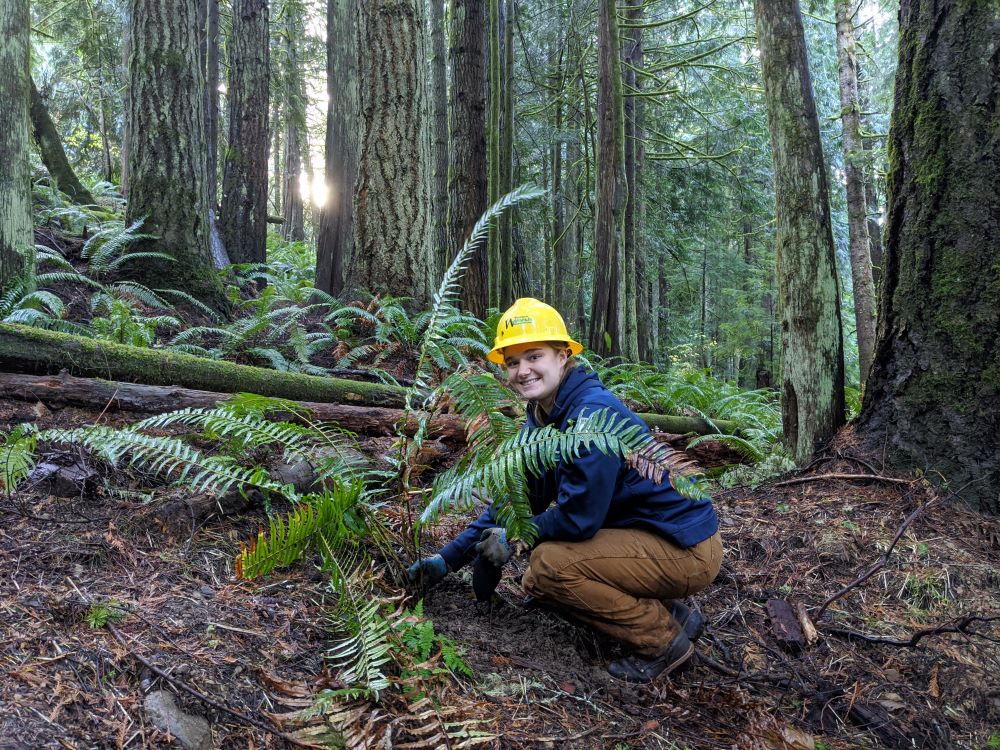This past fall, our Washington Conservation Corps (WCC) began an Environmental Justice pilot program that aims to support overburdened communities through our environmental projects.
An AmeriCorps program, WCC supports nearly 300 members annually who serve on critical environmental projects provided by a diverse network of over 100 partner organizations. These projects, ranging from habitat restoration to trail maintenance, improve the environment while providing hands-on conservation experience for our members.
Through a two-year Environmental Justice pilot program, WCC is providing field-crew support for select projects without requiring a cash match from the partner. For this pilot, we selected habitat restoration and trail projects that have a positive impact on vulnerable communities and take place in areas with disproportionate environmental burdens, in rural counties, or economically distressed counties.
Five months in, the pilot has provided over 16,000 hours of field-crew support across 14 partner organizations — and planning for year two of the pilot is already underway! Here’s a look at a few projects our Environmental Justice pilot program has supported so far.
Protecting wildlife along the Yakima River
The crews dismantled sections of old fencing and installed new posts, braces, and wires along more than 3,000 feet of habitat. This fencing helps contain a herd of bison raised by the Yakama Nation and keeps the bison out of the neighboring Satus Wildlife and Recreation Area, a protected stretch of wetland habitat along the Yakima River.
Keeping invasives at bay in the Lower Elwha
On the Olympic Peninsula, WCC members are supporting the Lower Elwha Klallam Tribe through noxious-weed removal. Invasive Scotch broom and Himalayan blackberry have spread onto properties throughout the reservation, blocking gathering spaces and encroaching on riparian restoration zones.
Using weed wrenches, our crews pulled up entire plants — roots and all — for proper disposal. For larger and harder-to-pull plants, members used loppers to cut the woody stems and applied approved herbicide directly to the stump. These removal methods provide immediate relief by reopening access to the land while also minimizing further seed spread around the reservation.
Controlling erosion at Seahurst Park
Straw wattles, pictured here at Seahurst Park, are one tool to manage erosion and stormwater runoff along steep slopes.
A landslide impacted a section of the park last year and required rehabilitation to stabilize the steep hillside and prevent damage to the service road below it. To prepare the area for erosion control, our crew cleared over 1,000 square feet of invasive English ivy and Himalayan blackberry, then placed straw wattles (long tubes of compressed straw) along the bare hillside. The wattles, which are placed perpendicular to the slope, work to slow down running water and prevent it from carrying soil down the hillside.
Between the wattles, the crew installed native plants, like salal, sword fern, snowberry, and western red cedar, along with mulch to jumpstart revegetation and build a stronger hillside with their root systems.
Interested in applying for an Environmental Justice project?
Applications for Environmental Justice pilot program projects during our 2023 – 2024 AmeriCorps service year (October 2023 – September 2024) are open now! Head to our Partner with the WCC page for information on the application process. Applications are due by Thursday, May 4, for priority consideration.
Eligible partners for this pilot are local and tribal governments or nonprofits with limited resources or who may not otherwise have been able to afford WCC field-crew support.
We also are accepting applications for cost-share projects and Individual Placement member positions.
WCC crews serve outdoors on a wide variety of restoration and trail maintenance projects throughout the state, including this restoration site along the Lyre River.
Want to join WCC as a crew member?
We are recruiting more than 50 AmeriCorps members to join us in the field this summer! Our field crews serve outdoors and support environmental projects like invasive-species removal, native-plant installation, wetland restoration, wildland-fire mitigation, and trail and campground improvements.
Visit our member positions page to learn about our eligibility requirements, then visit our web map to view openings, read position descriptions, and fill out an online application.




